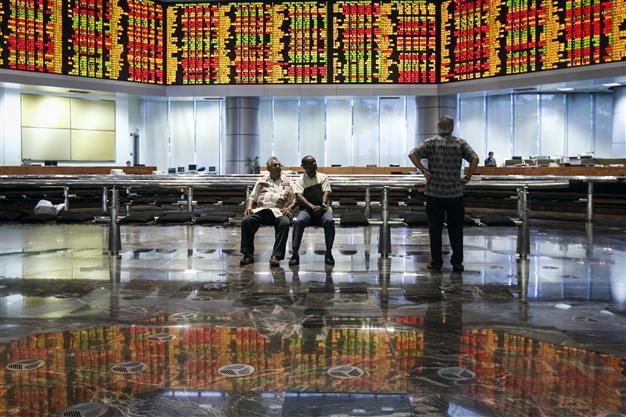Islamic financial products risk losing uniqueness: Poll
KUALA LUMPUR - Reuters

AP Photo
Islamic finance continues to expand globally but the industry risks losing its differentiation from conventional financial products and lacks official data to ensure better supervision, an oversight body said.
Islamic finance weathered the global financial crisis better than conventional banking and is recovering in areas such as profitability and asset quality, the Islamic Financial Services Board (IFSB) said in its third financial stability report.
Islamic finance, which has its core markets in the Middle East and Southeast Asia, follows religious principles that ban interest and shun outright speculation, and as such is seen as an alternative to interest-based banking.
But the industry’s fastest-growing Islamic bonds segment (sukuk) is moving away from profit-sharing structures, which risk weakening the industry’s value proposition.
Less than 7 percent of all new sukuk issued in the first three quarters of 2014 were based on risk-sharing contracts and instead favored sales-based contracts, the report found.
This could lead sukuk to be valued using similar pricing and risk management approaches used for bonds.
“As a result, any adversity in the global financial system, even if it originates in the conventional sector, has an impact on the financial stability of the sukuk market.”
This was observed in the volatility stemming from the U.S. Federal Reserve’s monetary policy meetings, which had identical effects on both the sukuk and bond markets, the report said.
Another concern is the lack of official data to help monitor and supervise the industry. Some public and private sector entities collect such information but in most cases it is not standardized or comprehensive, the IFSB said.
Last month, the IFSB launched a databank of industry indicators covering 15 countries aiming to help fill this gap.
Islamic finance now holds systemic importance in countries such as Kuwait and Qatar, and has made wider gains buoyed by support from governments such as Pakistan and Turkey.
But with growth come more regulatory requirements, such as consumer protection tools in the form of sharia-compliant lender of last resort facilities, which remain rare.
The IFSB found that out of 24 countries surveyed, only Bahrain, Malaysia, Nigeria and Sudan have implemented such facilities. Fifteen respondents said they would consider lender of last resort provisions, but timeframes ranged from one to five years.
Jordan expects to have a lender of last resort facility fully operational within one to two years, the report said.
